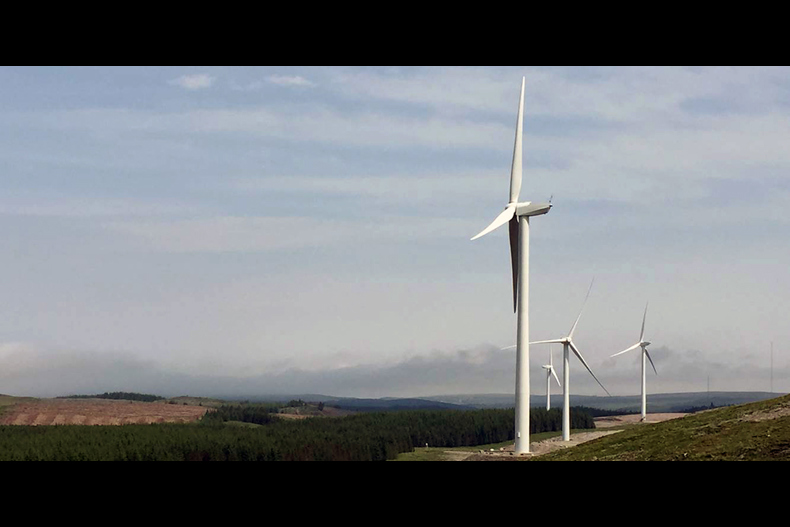
The IPCC’s recent global warming report came with a stark warning - we must accelerate the global response to climate change.
The world’s leading climate scientists spelled out that temperature rises must be kept under 1.5oC if we are to try and thwart the damaging effects of climate change.
And it’s clear that working towards a low carbon economy is a necessity, not an ambition.
SSE has been a leading developer and operator of clean energy technology for over a decade now. Our announcement in November that we will create SSE Renewables - bringing together the development, operation and ownership of all of SSE’s onshore wind, offshore wind and hydro assets in the UK and Ireland – is an important step forward in playing our part in decarbonising the electricity system.
Creating SSE Renewables is also a vote of confidence in the long-term prospects for the green energy sector.
SSE Renewables will start in a strong position, having the largest installed capacity for generating energy from renewable sources of any generator across the UK and Ireland.
But we want to build on that, and this new, single entity will help us to do that in three clear ways.
First, it conveys a keen-ness to invest: Creating SSE Renewables is explicitly designed to enhance our ability to raise finance from diverse sources, building on SSE’s position as the largest issuer of green bonds from the UK corporate sector. We want to invest more in renewable energy, and the new company will help us do that.
Second, it signals an appetite to compete: the costs of technologies like solar and wind have already fallen rapidly over recent years, approaching the cost of conventional generating technologies. SSE Renewables will have an unerring focus on efficiency and innovation, ensuring that renewable energy represents value for money for the customers who ultimately pay for it.
Third, it shows a commitment to skills and quality jobs: SSE Renewables will be led by an experienced management team with a strong track record in developing highly-skilled jobs in some of the most rural parts of the UK and Ireland. It will have the enterprise and entrepreneurial flair to build on this in the future. It’s always people who make the difference.
Over the last decade, the UK and Ireland have been very positive places to invest in renewable energy, and both countries can be pleased with the progress they have made towards decarbonisation. To build on this, policymakers should have three main priorities.
They need to take an end-to-end look at the planning system - onshore and marine - to make sure that the cumulative impact of every rule, regulation and guideline is to facilitate responsible renewable energy development, not stall it. An effective planning system that safeguards all stakeholders’ interests is key – but so is one that can be navigated in a clear, transparent and timely way.
The second is to regard the offshore wind sector as of strategic significance to the economies of the UK and Ireland and to regard recent successes in terms of installed capacity and lower costs as just the start. Confidence across the sector is good and the potential is enormous. But it needs to be nurtured with a sustained, long-term, practical commitment to a policy framework - regular CfD auctions in the case of the UK. Last week’s CfD budget announcement was an important milestone for the industry.
The third is to look again at onshore wind. Inappropriate development of wind farms does nobody any good; but nor does creating barriers to an indigenous source of large amounts of clean, cheap energy. I have no doubt that customers’, communities’ and companies’ interests can be reconciled in a way that makes future onshore wind farm development feasible.
So SSE Renewables is an important step forward in a sector that’s brimming with potential in countries that have done so much, and can do so much more, to bring renewables into the energy mainstream.
It’s good news for SSE; and it’s good news for the fight against climate change too.


